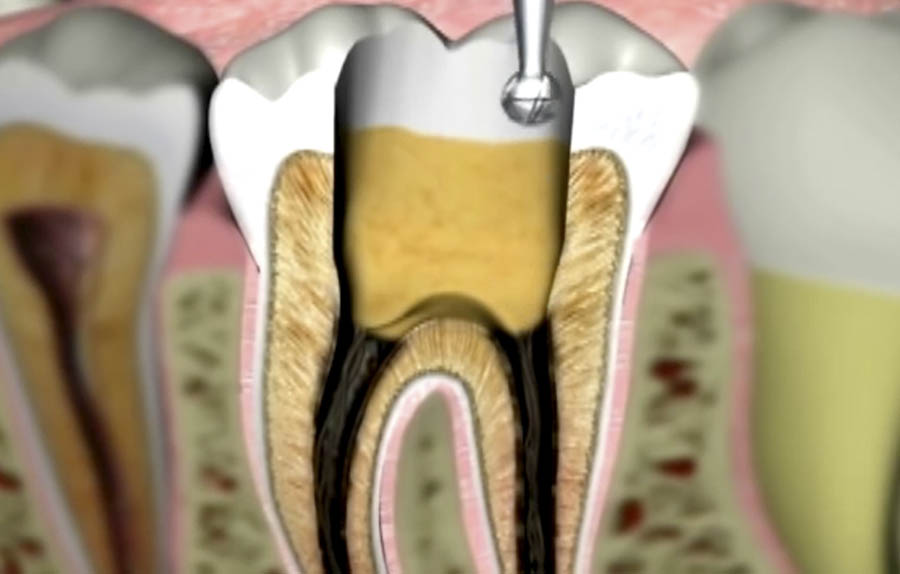Endodontics
Endodontics is a specialized branch of dentistry that deals with the complex structures found inside the teeth. The Greek word “Endodontics” literally means “inside the tooth” and relates to the tooth pulp, tissues, nerves, and arterioles. Endodontists receive additional dental training after completing dental school to enable them to perform both complex and simple procedures, including root canal therapy.. Their advanced training, specialized techniques, and superior technologies mean you get the highest quality care with the best result — saving your natural teeth!
Historically, a tooth with a diseased nerve would be removed immediately, but endodontists are now able to save the natural tooth in most cases. Generally, extracting the inner tooth structures, then sealing the resulting gap with a crown restores health and functionality to damaged teeth.
Signs and symptoms of endodontic problems:
- Inflammation and tenderness in the gums.
- Teeth that are sensitive to hot and cold foods.
- Tenderness when chewing and biting.
- Tooth discoloration.
- Unexplained pain in the nearby lymph nodes.Teeth that are sensitive to hot and cold foods.
- Tenderness when chewing and biting.
- Tooth discoloration.
- Unexplained pain in the nearby lymph nodes.
Benefits of Root Canal Treatment
There are many clinical reasons for needing root canal treatment, but there are also countless practical reasons why saving the natural tooth is a wise choice.
- Keeps more of your natural smile intact
- Restores your ability to bite and chew without pain
- Prevents jawbone degeneration and other side effects of missing teeth
- Root canal treatments have a high success rate
- Root canal therapy is pain-free with options in anesthesia and sedation
Endodontics is particularly important:
- In root canal procedures, to eliminate inflammation or infection of the tooth’s internal canal system and maintain tooth function.
- If prior treatment has not generated healing in the surrounding tissues or such treatment did not meet accepted standards.
- When there is no other way to negotiate the canal system (due, for example, to blockage by a radicular post, absence of alternate canal treatments or investigation).
- In traumatic oral and dental injuries requiring prompt response after an accident and where post-traumatic follow-up is needed to optimize the likelihood of maintaining the teeth in place and minimizing circumstances that could result in their loss.
- Endodontics has been revolutionized through the introduction of magnifying lenses and surgical microscopy. Such tools permit much more accurate examinations of dental pulp and periradicular structures.
